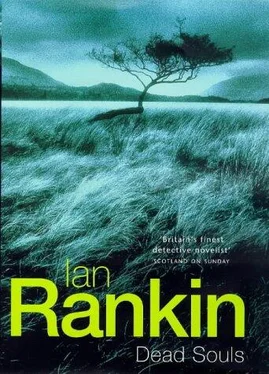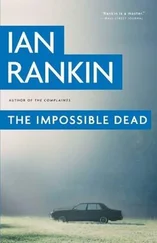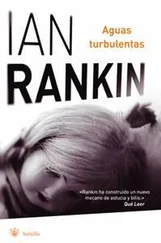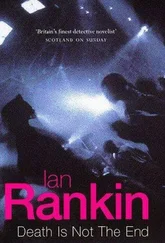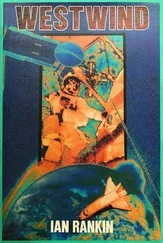Ian Rankin - Dead Souls
Здесь есть возможность читать онлайн «Ian Rankin - Dead Souls» весь текст электронной книги совершенно бесплатно (целиком полную версию без сокращений). В некоторых случаях можно слушать аудио, скачать через торрент в формате fb2 и присутствует краткое содержание. Город: London, Год выпуска: 1999, ISBN: 1999, Издательство: Orion, Жанр: Полицейский детектив, на английском языке. Описание произведения, (предисловие) а так же отзывы посетителей доступны на портале библиотеки ЛибКат.
- Название:Dead Souls
- Автор:
- Издательство:Orion
- Жанр:
- Год:1999
- Город:London
- ISBN:978-0-7528-0723-2
- Рейтинг книги:5 / 5. Голосов: 1
-
Избранное:Добавить в избранное
- Отзывы:
-
Ваша оценка:
- 100
- 1
- 2
- 3
- 4
- 5
Dead Souls: краткое содержание, описание и аннотация
Предлагаем к чтению аннотацию, описание, краткое содержание или предисловие (зависит от того, что написал сам автор книги «Dead Souls»). Если вы не нашли необходимую информацию о книге — напишите в комментариях, мы постараемся отыскать её.
Dead Souls — читать онлайн бесплатно полную книгу (весь текст) целиком
Ниже представлен текст книги, разбитый по страницам. Система сохранения места последней прочитанной страницы, позволяет с удобством читать онлайн бесплатно книгу «Dead Souls», без необходимости каждый раз заново искать на чём Вы остановились. Поставьте закладку, и сможете в любой момент перейти на страницу, на которой закончили чтение.
Интервал:
Закладка:
Ian Rankin
Dead Souls
To my long-suffering editor, Caroline Oakley
The world is full of missing persons, and their numbers increase all the time. The space they occupy lies somewhere between what we know about the ways of being alive and what we hear about the ways of being dead. They wander there, unaccompanied and unknowable, like shadows of people.
Andrew O’Hagan, The Missing
Once I caught a train to Cardenden by mistake... When we reached Cardenden we got off and waited for the next train back to Edinburgh. I was very tired and if Cardenden had looked more promising, I think I would have simply stayed there. And if you’ve ever been to Cardenden you’ll know how bad things must have been.
Kate Atkinson, Behind the Scenes at the Museum
Introduction
Dead Souls was wholly conceived and written in Edinburgh — the first time this had happened since Rebus’s initial outing in Knots & Crosses . The intervening novels had been written during my four-year stint in London, or else in the further six years spent in rural France. Now I was back in Edinburgh... and worried that I would no longer be able to write about the place. This was a realistic fear, too: I had used geographical distance to help me recreate Edinburgh as a fictionalised city. How would I cope now that I could take a short stroll and see what I’d been getting wrong all those years?
I needn’t have worried.
Dead Souls is named after a song by Joy Division. As its title might suggest, it’s not a number you would dance to at weddings, unless you count the Addams Family among your in-laws. I was aware, of course, of Joy Division’s source material — the unfinished novel Dead Souls by Russian writer Nikolai Gogol. The phrase ‘tortured genius’ might have been coined with Gogol in mind. Having published the first half of Dead Souls , he ended up burning the drafts of its second half. Later on, he started work on the book again, until his religious teacher persuaded him to renounce literature altogether. So the latest version of the second half went up in flames again, and Gogol died ten days later.
My own book is divided into two parts, entitled ‘Lost’ and ‘Found’. Both begin with an italicised quotation from Gogol’s work, the one accompanying ‘Found’ being the last words recorded by him. The title of the book came to me early. I knew I wanted to write about MisPers — missing persons. I had become interested in them when doing research for Black & Blue . In a non-fiction work entitled The Missing (which I had read because it contained passages about the Bible John murders), journalist Andrew O’Hagan had discussed the phenomenon of loss and the hole left in the fabric of our lives when someone vanishes. Inspired by O’Hagan’s work, I’d written a seventy-page novella called Death Is Not The End (itself a Bob Dylan title, but known to me through a contemporary reworking by Nick Cave). This novella had been written at the behest of an American publisher, who then seemed to find no immediate market for it. Worried that it might never see the light of day, I decided to ‘cannibalise’ parts of the story for my next full-length novel — which is why two versions of the story exist, albeit with different outcomes.
Okay, so I was ready to rework my novella into a novel. But another real-life story had caught my eye in the interim. On a rough housing estate in Stirling, the locals had been roused by news that a convicted paedophile was living quietly in their midst. The vigilante instinct took over, and the man was chased out. Two things struck me about this. One was that it continued the theme I’d touched on in my previous novel The Hanging Garden — namely, how do we begin to measure right and wrong? The other was that Rebus’s knee-jerk reaction to news of a ‘hidden’ paedophile would be the same as that of many people of his generation, class and philosophy: he’d ‘out’ the bugger, and damn the consequences. Well, I’ve seldom shirked a challenge: I wanted to see if I could change his mind about a few things...
I also wanted to take him home, back to where he grew up in central Fife. Although many of my books have had cause to send Rebus to Fife, Dead Souls is my most personal investigation of my own background. When high-school ‘flame’ Janice reminisces with Rebus, she is using my own memories and anecdotes. We learn more, too, about Rebus’s childhood, including that he was born in a pre-fab (as I was) but soon moved to a terraced house in a cul-de-sac (as I did). We find out that, like me, he drank in his home town’s Goth pub (Goth being short for Gothenburg), and that his father brought a silk scarf back from World War II (as did mine). Much of this is reflected in the names I give to Rebus’s school friends: Brian and Janice Mee. They’re ‘me’, you see, as are characteristics of many of my other creations, Rebus chief among them.
There are plenty of in-jokes in the book, despite the sombre tone of its material. We meet Harry, ‘the rudest barman in Edinburgh’ (who, in real life, is now landlord of the Oxford Bar and can afford to be rude only to a select few of us who expect no less of him). The nightclub in the book is called Gaitano’s, after the American crime writer Nick Gaitano, who also wrote under his real name of Eugene Izzi. He’d been found dead shortly before I started work on the book, in what appeared, at least initially, to be mysterious circumstances. The headless coachman mentioned at the start of the book (and later on, as the name of a pub) is actually Major Weir, a real-life character from Edinburgh’s dark side. Weir and his sister were accused in 1678 of being warlock and witch. Both were eventually executed, despite having lived lives of exemplary piety, and with only the Major’s rambling and befuddled confession as ‘proof’.
The modern equivalent of a witch-hunt? Look no further than the popular media’s treatment of suspected paedophiles...
Dead Souls was a landmark of sorts for me, being the first time I had allowed a charity to auction off the right for someone to appear as a character in one of my books. These days, I do this up to six times per book, but there was just the one instance in Dead Souls . The prize was won by a friend, but she didn’t want the honour for herself. Oh no, she wanted it for another of her friends in the USA, a woman called Fern Bogot.
‘It doesn’t sound very Scottish,’ I complained.
In the end, I decided that ‘Fern’ sounded like an assumed name. Who might not want to use their real name as they went about their business? Of course: a prostitute! So it was, and with some little reluctance on her part, that clean-living Fern Bogot became an Edinburgh hooker...
One last thing about Dead Souls . A fan at a question-and-answer session once picked me up on my use of the phrase ‘trellis tables’ when what I actually meant was ‘trestle tables’. She was right, and I’ve left the error intact for your enjoyment. But she also told me that I use trestle tables a lot in my books... and in rereading the series as preparation for writing all the new introductions, I can confirm that she was right in this particular also. Don’t ask me what it is about them; I just can’t stop writing the words down...
Trestle tables.
There, I did it again.
Ian Rankin
May 2005
Prologue
From this height, the sleeping city seems like a child’s construction, a model which has refused to be constrained by imagination. The volcanic plug might be black Plasticine, the castle balanced solidly atop it a skewed rendition of crenellated building bricks. The orange street lamps are crumpled toffee-wrappers glued to lollipop sticks.
Читать дальшеИнтервал:
Закладка:
Похожие книги на «Dead Souls»
Представляем Вашему вниманию похожие книги на «Dead Souls» списком для выбора. Мы отобрали схожую по названию и смыслу литературу в надежде предоставить читателям больше вариантов отыскать новые, интересные, ещё непрочитанные произведения.
Обсуждение, отзывы о книге «Dead Souls» и просто собственные мнения читателей. Оставьте ваши комментарии, напишите, что Вы думаете о произведении, его смысле или главных героях. Укажите что конкретно понравилось, а что нет, и почему Вы так считаете.
